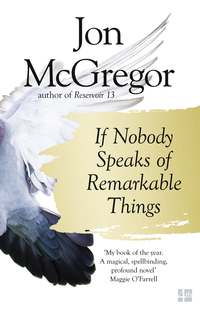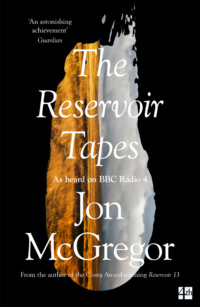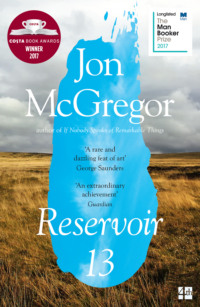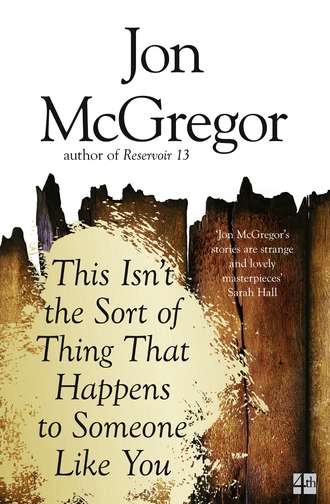
Полная версия
This Isn’t the Sort of Thing That Happens to Someone Like You
Later, they learned that the grandfather had worked as an armourer, loading munitions into the heavy bomber aircraft and cleaning out the gun-turrets and bomb-bays when the aircraft returned. The task would at times have involved the removal of bodies and body-parts, but that was never discussed. From this airfield, squadrons had flown out to destroy whole towns; burying households beneath rubble, igniting crematorial fires, busting dams and drowning entire valleys. Some civilians were killed. The war was won.
On their way home, they passed the modern RAF base at Coningsby, driving alongside the perimeter fence for a mile or two before entering the town itself. As they passed the end of the main runway, they saw a small gravelled car-park on the other side of the road, sheltered from the wind on three sides by a thick line of gorse bushes. The car-park was full. People were sitting beside their cars in ones and twos, on folding chairs, with blankets across their knees and thermos flasks cradled in their laps. They had binoculars and long-lensed cameras and notebooks. They were waiting for the modern fighter aircraft stationed at the base to take off and land, so that they could take pictures and make notes and gaze in awe. They were also waiting for something called ‘The Memorial Flight’: a regular display by vintage bomber aircraft. As though vintage was a word which could be used about a bomber plane in the same way it could be used about a car, or a suit, or a set of buttons.
As they drove past, the grandfather turned to look at the people in the car-park. He didn’t say anything. He watched them through the back window. He didn’t say anything as they drove through Coningsby, past the church and over the river and out along the main road to the motorway. He waited until they got back to the house, and as they helped him out of the car he asked just what it was those people with the binoculars had thought they might be waiting to see.
We Were Just Driving Around
North Ormsby
We were just driving around.
It was late in the evening but it was still light. We’d been out for hours and it was one of those nights when it seemed like basically it was never going to get dark. We hadn’t seen anyone around, and a couple of times when we’d stopped and got out it had been totally quiet, like normal, but we had the music turned up loud in the car and it made things seem sort of hectic or like picturesque? With how far you could see across the fields, and the speed, and the light, and the music? Like when you’re walking around with headphones on and it makes everything seem like a film? Like that. Anyway.
Josh was talking about setting up a business selling handmade snacks. He said he wasn’t going to go to university, he was going to make his fortune straight out of school. His big idea was that you could get these like gourmet snacks made to order, right there in the shop. It would be like the deli-counter of the munchie world, he was saying. He was laughing about it, but he was totally serious, he was laughing because he thought it was so brilliant. Any flavour you want, he was saying, any snack you want! I’ll be a millionaire! He sounded like someone off The Apprentice. He was listing all the snacks he could think of, crisps and pretzels and Bombay mix and popcorn, and what they were all made of, and he was talking about how the economics of it were brilliant. Pennies into pounds, my friends! He kept shouting that. Pennies into pounds! He was shouting because the music was so loud but also because he was so excited about it? I didn’t really get it. Anyway.
Tom wanted to know if this shop was going to be located round here and if so then where did Josh think his customer base was going to come from? It didn’t look like Josh had thought about that. He waved his hand around a bit, meaning: like, around here somewhere? I don’t know yet, he said. There’s people around though, there’s like a widely distributed customer base, yeah? He pointed to a farmhouse over on the right, three or four fields away, and then another one a bit further off, the other side of the river. The lights in the windows were just coming on so it must have been a bit darker by then than it seemed. There you go, he said, that’s two of them right there. Tom said, what, are you going to do it like mobile? A mobile crisp van? Josh leaned over and punched him in the shoulder, and it was sort of a play-punch but he sort of meant it as well. No one said anything for a minute. It was just the music and the sound of the tyres on the road. I wasn’t even sure where we were. I could see the red lights of some television mast or something, and the sky all shadowy blue behind it. We went over a little bridge and it felt like the tyres left the road for a second. I don’t think Josh even knew where we were going. Josh said, don’t take the piss mate. This is serious, this is totally serious. This is going to work, yeah? It’s like, a totally unfulfilled market niche. And I’ll be filling in that niche, big-time.
That got us laughing for a bit, about Josh filling in an unfulfilled niche.
Tom wouldn’t let it go though, he was giving it all the economic model and the population density and the vulnerability of depending on impulse purchases and Josh was all nodding but then he goes Tom mate you don’t get it. You don’t get it. I’m talking about handmade gourmet snack products. Made to order! Like, locally sourced! They’ll come pouring in from every direction! They’ll be queuing up outside! He cut the music and put on this solemn face and a deep voice like from a film trailer and goes: If you fry it, they will come.
That set us off laughing again. The state we were in, it didn’t take much? Plus Josh had this very high-pitched laugh that was pretty infectious, and once he’d got us all going it was just about impossible to stop? It just kept sort of growing, getting louder and louder, like something sort of swelling up until it filled the car and we couldn’t hardly breathe and the noise of it was making me dizzy and then Amanda said Josh will you slow down a bit and he turned round to ask her what she’d said so that must have been how come he never saw the corner?
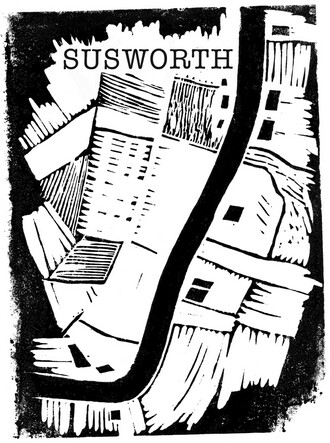
Back to contents page
If It Keeps On Raining
Susworth
This is how his days begin. If you really want to know. Standing in his doorway in the cold, wet morning light and pissing on the stony ground. Waking up and getting out of bed and walking across the rough wooden floor. Opening the door and pulling down the front of his pyjamas and the weight of a whole night’s piss pouring out on to the stony ground and winding down to the river which flows out to the sea. The relief of it. The long, sighing relief of it. He has to hold on to the doorframe to keep his balance.
He looks at the swirl and churn of the river. Boats passing, driftwood and debris. A drowned animal turning slowly in the current. Sometimes the people in the boats wave, but he doesn’t wave back. He didn’t ask them to come sweeping past like that while he’s having his morning piss. In their shining white boats with the chrome guard-rails and the tinted windows and the little swim-decks on the stern. As if they’d ever swim in this river. They can come past if they like but they shouldn’t expect him to wave. Not when his hands are full.
Sometimes there’s a man fishing on the other side of the river. It’s too far to see his face, so it’s hard to tell whether the man can see what he’s doing. But if he could he wouldn’t be embarrassed. This is his house now, and there’s nothing to stop him pissing on his own ground when he wakes up each day.
The boats mainly come past in the summer months, but the fisherman is there all year round. He brings a lot of accessories with him. He’s got two or three different rods, and rests to set them in, and a big metal case that he sits on with all sorts of trays and drawers and compartments, and he keeps getting up to open all the drawers and trays. As if he’s looking for something. As if he hasn’t got any kind of an ordered storage system. He has this long net trailing in the water, with the open end pegged down on the bank. He uses it to keep the fish in once he’s caught them. It’s not clear why. Maybe he likes to count them. Or maybe he likes the way they look when he empties them back into the river, the silver flashes pouring through the air, the way they wriggle and flap for a second as though they were trying to fly. Or it could be for the company.
And he’s got this other net, a big square net on the end of a long pole. If he gets fed up with all the rods and reels and maggots and not being able to find what he’s looking for in those drawers, he could just sit on the edge of the bank and sweep it through the river until he comes up with something. Like a child at the seaside. Like a little boy with one of those coloured nets on the end of a bamboo cane.
Like a little boy whose dad was showing him how to use one of those nets, and lost it. At the seaside. When they were out on a jetty, and the boy’s dad was sweeping the net back and forth through the clear salt-water, and the boy was pulling at his arm to say: Let me try let me have a go, and the man dropped it in the water somehow. The little boy wanted him to jump in and get it, and his father had to say: I’m sorry I can’t. And the little boy wanted him to buy another one and the man had to say, again: I’m sorry I can’t. The boy started crying and there wasn’t much the man could do about it. He could have picked him up.
The way these things come into his head, sometimes. Standing there in the morning, looking at someone fishing, pissing on the stony ground that slopes down to the river, thinking about nothing much and then a man losing his little boy’s net pops into his head from years back. This really was some years back now. The way he couldn’t buy a new net to make it better. The little boy with his red hair.
He stands there each morning and he looks at the river, the fields, the sky. He tries to estimate what the weather will do for the rest of the day. He makes some decisions about the work he’s going to do on the treehouse or the raft. He thinks about making breakfast. He thinks about going to look for more wood.
It’s hard to understand why the people on the boats wave, sometimes. Perhaps they feel strange being out in the middle of the water like that. They feel vulnerable or lonely and it helps if they wave. Or they think it’s just what they’re supposed to do. Maybe they say ahoy! when they pass another boat. Who knows. The men on the commercial boats never wave. There’s one that goes by about once a week, a gravel-barge, and he’s never seen them waving the whole time he’s been here, not at him or the man fishing or at any of the other boats. When it goes upstream it sits high on the water, its tall panelled sides beaten like a steel drum. But coming back down, fully loaded, it looks like a different boat, sunk low in the water, steady and slow, a man in a flat blue cap walking the wave-lapped gunwales and washing them down with a long-handled mop. And he wonders, often, what would happen if the man fell in, if he would prove to be a good swimmer, if the driver of the boat would be able to stop and pull him back on board. Or if the man would drown and wash on to the shore where this small piece of stony ground slopes down to the water.
He’s not sure what he would do if that were to happen. If he would step down towards the man, and pick him up. Or at least drag him clear of the river. He’s not sure if he’d be able to do it. Physically. Mentally. Maybe the right thing would be to wait for the proper authorities. Maybe his part could be to walk out along the road to the phone-box by the yacht club and do the necessary informing. They might come along and say: Thank you sir, you did the right thing. It was the right thing not to touch the body, well done. And take photos: of the stony ground, the body, the feet still paddling in the edge of the river. And people with the appropriate experience and accessories would come and pick him up, out of the water, and take him away.
They’d need the right accessories.
The other man on the boat wouldn’t be able to help. It’s a really big boat, he couldn’t just steer it over to the bank and moor up and come running over shouting: Where is he, where is he, is he okay? It wouldn’t be like that. He would have to continue his passage, steer the boat on to the nearest available pontoon and moor the boat securely, single-handed, and then come back to this location. And it’s possible that by then the proper authorities would have been and gone, and taken his mop-dangling friend with them.
He imagines the skipper at the wheel of his heavy-laden barge, looking back at the spot in the river where his friend had slipped in. It would be difficult. Two men doing a job like that, every day, they could become very close. They could develop a close understanding of each other. Up and down the same stretch, loading and unloading, tying and untying, not saying much to each other because the noise of the engine would make it difficult to hear and because anyway what would there be to say. But understanding each other with a look and a nod, and a way of standing or a way of holding themselves, they could become very close, they would know each other better than perhaps they know anyone else. And then one of them slips from the wet gunwale into the water and his friend can only turn and look, the water closing over him as if nothing had happened and the long-handled mop floating down the river, out to sea.
He thinks about this a lot. But, who knows. It doesn’t seem worth dwelling on. It seems an unlikely thing to need to consider, the proper procedure in such an event. But it’s not an entirely unlikely occurrence. It happens. It has happened. People fall in the water, and they disappear, and they reappear drowned. It’s not impossible. It’s a thing that can happen.
Perhaps that’s why the men on the barges don’t wave. Because they’re concentrating. They know about the things that can happen. They take the river seriously.
He watches them, when they pass, the man in the flat blue cap with the mop and the man at the wheel, and he wonders if they see him. If they see the man fishing, when he’s there, which is quite often, or if they see anything besides the river and the current and the weather and each other.
He imagines they keep quite a close watch on the weather, the two of them. We’ve always got half an eye on it, they’d probably say, if someone asked them, if they came into the yacht club one evening and someone bought them a drink and talked to them about working that great boat up and down the river. It has quite an effect on our operation.
He keeps a close watch on the weather as well, from his place on the riverbank. It changes quite slowly. He can see it happening in the distance: a break in the clouds, a veil of rain rolling in across the fields. Sometimes he thinks it would be interesting to keep a chart of it. Windspeeds, temperatures, total rainfall, that type of thing. But it would need certain equipment, certain know-how and measuring equipment, and he’s not sure where someone would come by that type of thing. Probably it would mean going into town.
But sometimes it can really take his breath away, how different this place can look, with a change in the weather. He can stand in the doorway, first thing in the morning, and all the rain from the day before has vanished and there are no clouds and it looks like maybe there never were any clouds and there never will be again, the sky is that clear and clean and huge, and everything that was grey before is fresh and bright like newly sawn wood. And then other times he can stand here and see nothing, the thick mist lifting up off the river and nothing visible besides the trees around his house. The river just a muffled sound of water rushing over the stony banks. The opposite bank completely lost, and no clue as to whether the fisherman is there or not with his rods and his accessories. The fisherman doesn’t seem the sort to let a damp day put him off his fishing, but there’s no way of knowing.
It’s frustrating, not being able to know. He’s a man who likes to know these things. What’s happening in his immediate surroundings. The lie of the land. Sometimes he’s even thought about walking round to the man’s spot to find out, to make sure. But it’s a long walk, and there are things he has to do with his time. It would be about six miles altogether, out along the road past the yacht club, into the village, past the post office, out by the farm to the new road bridge and then all the way back along the other bank.
And what would he say to him when he got there anyway. It would be awkward.
People call it the new road bridge, but it must be twenty or thirty years old.
It’s not just the weather that changes. It’s surprising, how new a day can look, how different the view can be when he stands there each morning having a piss on the stony ground. The height of the water, the colour of the sky, the feel of the air against his skin, the direction of the smoke drifting out from the cooling towers along the horizon, the number of leaves on the trees, the footprints of birds and small animals in the soft mud at the water’s edge, the colour of the river running by.
The speed of the water changes, that’s something else, with the height of the river. If it’s been raining a lot. The river draws itself up, the water churning brown with all the mud washed in off the fields, and the river rises up and races towards the sea, sweeping round bends and rushing over rocks or trees or sunken boats that sit and rest in its way, anything that thinks it can just rest where it is, the river rushes over and picks it up and carries it along, like loose soil and stones on the banks of outside bends, or trees with fragile roots, or a stack of pallets left too close to the water’s edge, it all gets swept along, like people in a crowd, like what happens in a football ground if there are too many people in not enough space and something happens to make everyone rush, if they all start to run and then no one person can stop or avoid it, they all move together and then what can anyone expect if there’s a dam been put up against all that momentum, if there’s a fence and someone saying stand back don’t run there’s enough room for everyone if you could spread out and stand back and just stop pushing.
When there’s not enough room. When there’s too many of them and someone puts up a fence and says stop pushing.
That’s what it’s like. The river. When it’s been raining too much. The momentum of it is huge and dangerous: it makes him think of a crowd of people being swept along and none of them can stop it and they get to a fence and someone says stop pushing. In a football ground. Everybody rushing into one space and there’s not enough room and no one can stop moving. And there’s a fence and someone standing behind the fence says: Stop pushing will you all please stop pushing.
It’s what comes to mind, when he sees the river like that.
And other times the river is quiet. After the rain has stopped. After a few days of the river raging past, all choked with mud and fury, it drops back down again; slows, slips away from the high carved banks and comes to what looks like a standstill. The sun in broken shards across its surface, like scraps of tinfoil thrown from a bridge by some children further upstream. It looks good enough to swim in, then. Not that he ever has. He’s never seen anyone swimming here. It doesn’t seem like a good idea.
*
So. This is how his days begin. If you really want to know. The morning creeps through the cracked windows of his house. He stands in the doorway, pissing on the stony ground, and he thinks about all these things. He looks at the river, and the sky, and the weather, and he thinks about his work for the day. He tries to allocate his priorities. The treehouse is almost finished, apart from the roof, but the raft is still a long way from being done.
The roof will be important.
He thinks about the people on the boats, and the man fishing, and children further upstream throwing things into the water. Throwing sticks and model boats, pieces of paper jammed into plastic bottles with screw-top lids. He imagines the bottles washing up on to his piece of land by chance, and he imagines unscrewing the lids and unrolling the pieces of paper. He thinks about the children, on the bridge, watching the model boats and the plastic bottles turning in the current. He imagines them shielding their eyes to catch a last glimpse. Two of them, a boy and a girl, the girl almost eleven now, the boy eight and a half. Red-haired, like their father. He imagines the girl turning away and saying: Come on, we should catch up with Mum now, and the boy saying: But I can still see mine, I can. Holding his small hands up to his eyes like binoculars.
And what would be written, on these pieces of paper?
The sky looks clear right across to the far field, a faint early sun shining off the river. But there’s a cold wind, and rain on the way.
Yellowed willow leaves blow across the stony ground and into the river, floating away like tiny boats heading out to sea.
And when it starts they won’t understand. They’ll put on coats and go outside, brandishing umbrellas against the violence of the sky. They’ll check the forecast and wait for the rain to stop so they can hang the washing outside. But it won’t stop. They should understand, but they won’t.
The treehouse is almost done. It was slow when he started; he didn’t really know what he was doing. He had to try a few different techniques before he could progress. There was less urgency then. There’s more now. It’s sort of imperative that he gets it finished soon. He’s used pallets mostly. They’re easy to get hold of, and if it looks a bit untidy then so what. At least it does the job.
Some of the others in the yacht club have noticed. They must have seen it from the road when they were driving past. They were laughing about it last time he went in. One of them asked if his name was Robinson and where was the rest of the Swiss family, and he almost did something then, like swinging a big glass ashtray into the side of his head or pushing him off his stool. But he didn’t. He’s more careful now. Accidents and things like that happen very easily, if he’s not careful. So he didn’t say a thing. They asked him lots of questions, like what was he building it for and why was it so high and what was he going to do when the winds picked up. He just said he had some wood lying around and he thought he’d give it a go, and when someone beat their chest and made a noise like Tarzan he got up and left. He didn’t even slam the door, and he didn’t go back when he heard them laugh.
Who knows why they call it the yacht club. None of them have got yachts.
The way they laughed. Some people deserve it, what will come.
It might not be the finest treehouse ever built, but it does what it needs to do. It’s difficult to get the details exactly right when you’re fifty foot up in the air. It’s hard enough getting all the wood up there in the first place. It would be easier with two people. Or quicker, at least. But it’s just him, now, so it takes some careful planning. Some forethought. And hard work.
He needs some roofing felt. Or an old tarpaulin, if he can’t find any felt. The roof will be important. He’ll need to take his time over the roof. And then there’s the raft, of course: he’s got the basic structure, the barrels and the pallets, but it needs more work on the lashings. It’s the structural integrity which will count, in the long run. It might need some kind of shelter as well, a little cabin or a frame for a tarpaulin. If it can take the weight.




